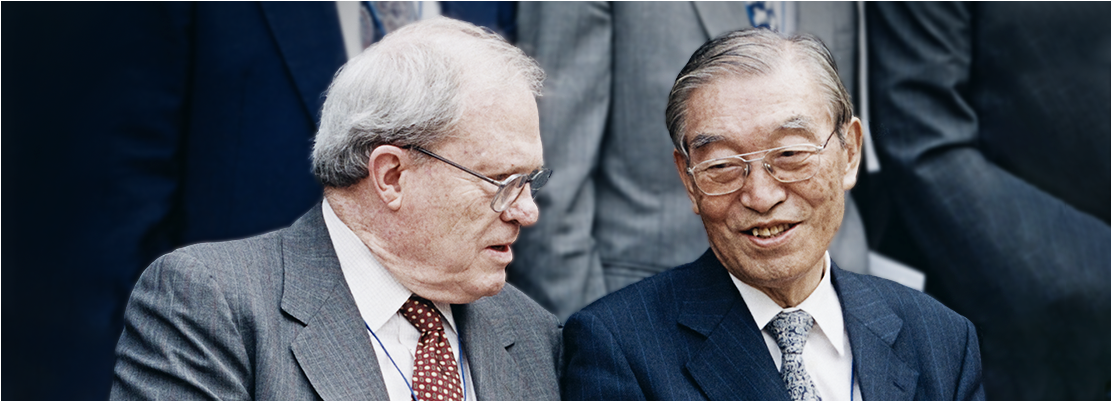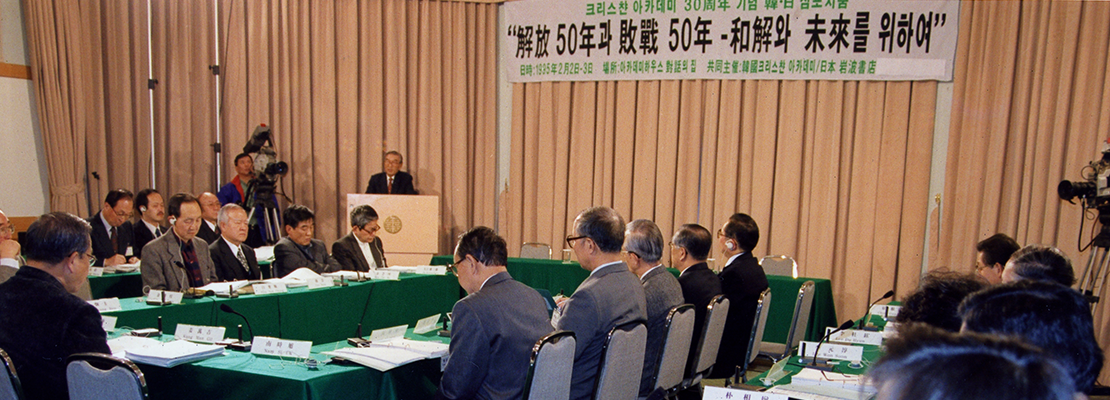
The ancient Greek philosophers held many dialogues in the "groves of Academe" during their search for truth, and the name "Academy Movement" was chosen with the intent to enliven this spirit in modern society. Dr. Eberhart Müller of Germany founded the Academy Movement upon his return home after World War II, which had devastated his country. He himself was suffering in a chaos of despair, and thought Germany should be rebuilt on the spirit of cooperation through dialogue. He built academy houses in major German cities; they became centers where, each year, more than 50 thousand leaders gathered from all parts of society to unburden their hearts and to discuss critical social issues; and this movement greatly influenced the revival of West Germany.
Development of Academy Movement

The earliest origin of the Kang Won Yong Foundation was 'The Korean Christian Institute on Social Concerns,' established in 1959 to contribute to democratization and humanization through dialogue, particularly by alleviating social polarization. The Korean Christian Institute on Social Concerns was a small dialogue meeting that dealt with a wide range of social issues. Rev. Kang Won Yong, returning to Korea after theological studies in the U.S.A., founded it in the belief that the Korean churches were called to contribute to society. This was before the Academy Movement of Germany had been introduced to Korea.
Following that, a meeting in 1962 between Rev. Kang Won Yong and Dr. Eberhart Müller, the founder of Germany's Academy Movement, led to the official launching of Korea Christian Academy on May 7, 1965, and the development of the 'dialogue movement.' Different from a foreign cultural transplant, the Korean Academy Movement proceeded with programs that matched the Korean reality.
Art of Dialogue

Academy Movement is the practice of dialogue in the belief that it can make a better society. The Foundation works to identify problems in Korean society and to discover reasonable solutions through research, dialogue, education and publications, with the goal of creating a more mature society.
The Academy Movement is well known for its 'dialogue meetings.' In each period, as controversial issues have arisen among the different social groups and classes, the Movement has invited knowledgeable persons from related fields to share dialogue, to find the causes of the division or conflict, and to seek ways forward for society.
The ideological background of the Academy Movement includes 'Christ's incarnation,' 'creation of a new symbiotic culture,' and the 'tradition and spirit of dialogue.' Even with its Christian background, its programs are not tied to one religion; the Foundation has dealt with topics related to every religion in Korea. Over the past 50 years, the Academy Movement has walked together with Korean society, helping it deal with the challenges of modernization, humanization, polarization, politicization and democratization, training mediation groups, and supporting the formation of democratic cultural communities.